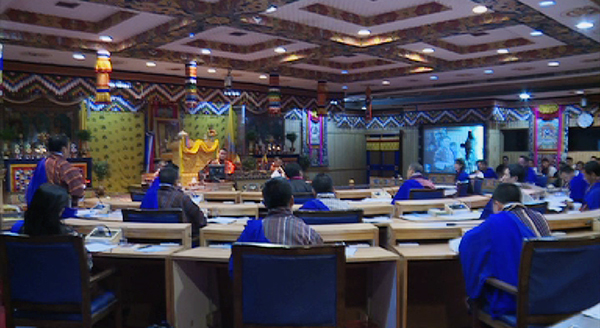
Lack of adequate rehabilitation facilities in the country is one of the challenges in addressing alcohol abuse. The Good Governance Committee of the National Council highlighted this during the presentation of the Review Report on the Harmful Use of Alcohol in the country yesterday.
Currently, there are only three rehab centres in the country. Such services, according to the Committee, are challenged with limited capacities both in terms of infrastructure facilities and human resources. As a result, people either go to rehabilitation centres outside the country or relapse to abusing alcohol or drugs.
“There are no adequate rehabilitation centres in Bhutan. The services related to rehabilitation centres are also very limited. From the health perspective, they do everything medically but finally, the last resort is rehab. There are lots of health programs and treatments related to it but just medical treatment doesn’t work. The total intake capacities of the existing centres in the country are 75 catering just 20% of the total 375 alcohol or drug addicts. Due to insufficient rehabs in the country, many people go outside for such services,” Bumthang MP Nima said.
He said, as per an informal source, 584 individuals underwent rehab programmes outside the country between 2012 and 2019. It is estimated that the per capita alcohol consumption among Bhutanese is 8.47 litres, which is higher than the global consumption of 6.2 litres.
The report also states negative social stigma, and the absence of a dedicated agency for alcohol are some of the factors leading to alcohol abuse.
So the Committee proposed for the creation of adequate recreational and aftercare facilities, public awareness on social stigma and feasibility of identifying Bhutan Narcotic Control Authority (BNCA) as the central agency for alcohol control.
The report states that the other main factors leading to alcohol abuse as observed by the committee were lack of family support, easy availability and affordability of alcohol, and perceived cultural perception. The Committee recommends that the government should come up with affirmative actions to ensure responsible parenting, and pricing policy to address the issue of accessibility and affordability.
The recommendations also include the need for national-level studies on alcohol and periodic assessment of the interventions and measurements of performance to enhance social aspects of development.
The report also revealed the current scenario of alcohol use and its harmful effects on health, society, and economy.
According to the health ministry, alcohol liver disease continues to be a top killer in the country. Going by the annual health bulletin 2017, every year, the disease leads to 15 deaths. The government spends millions of ngultrum to treat patients suffering from alcohol-related-diseases and referral cost is growing by the year. In 2016, the ministry, in collaboration with relevant agencies started implementing the National Policy and Strategic Framework to reduce the harmful use of alcohol.
Besides health problems, excessive use of alcohol also affects interpersonal relationships, increases violence, accidents and road crashes. RENEW reports indicate that 70 per cent of domestic violence was committed under the influence of alcohol.










